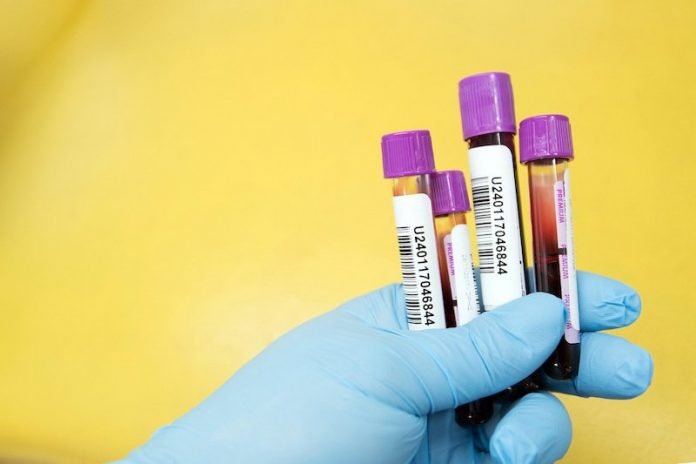
Frontotemporal dementia is the second most common cause of dementia in the working-age population.
Its diagnostics are complicated by the similar symptoms presented by patients with psychiatric disorders or other neurodegenerative diseases as well as the lack of reliable diagnostic tools for differentiating these patients from each other.
In a new study from the University of Eastern Finland, researchers found for the first time that a blood test could distinguish patients with frontotemporal dementia from those with primary psychiatric disorders,
The new method is a blood-based measurement of glial fibrillary acidic protein (GFAP).
The levels of GFAP were much higher in the blood of the frontotemporal dementia patients as compared to psychiatric patients or healthy individuals.
Moreover, increased blood levels of GFAP predicted severer brain atrophy and faster disease progression.
GFAP originates from the glial cells in the central nervous system, and its increased levels reflect brain atrophy and neuroinflammation.
Brain-derived biomarkers are currently mainly measured from the cerebrospinal fluid (CSF) of the patients.
In the study, the team showed that ultrasensitive single-molecule array (SIMOA) is a method, which allows reliable detection of GFAP also from blood samples.
This is much more practical and convenient for the patients and the health care system because it reduces the need of CSF sampling and allows wider use of biomarker measurements in clinical work.
The study also found that while GFAP shows good diagnostic performance on its own, its diagnostic accuracy is further increased when combined with blood-based measurements of the neurofilament light protein from the same patients.
The findings are expected to provide new tools for improved frontotemporal dementia diagnostics.
In the future, it may be possible to distinguish patients with a neurodegenerative disease from patients with other brain diseases even at the onset of the first symptoms.
If you care about dementia and Alzheimer’s, please read studies about this common mental problem linked to faster development of Alzheimer’s disease and findings of this type of drug may increase risk of Alzheimer’s disease.
For more information about Alzheimer’s and dementia, please see recent studies about evidence of Alzheimer’s, Parkinson’s in brains of people exposed to dirty air and results showing that this Amazonian tea shows great potential in treatment of Alzheimer’s and Parkinson’s.
The study is published in Journal of Neurology, Neurosurgery & Psychiatry. One author of the study is Kasper Katisko.
Copyright © 2021 Knowridge Science Report. All rights reserved.



